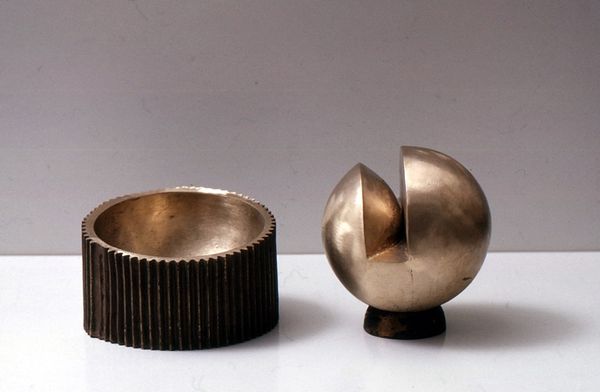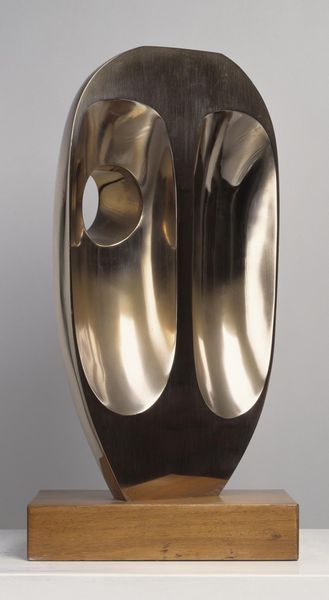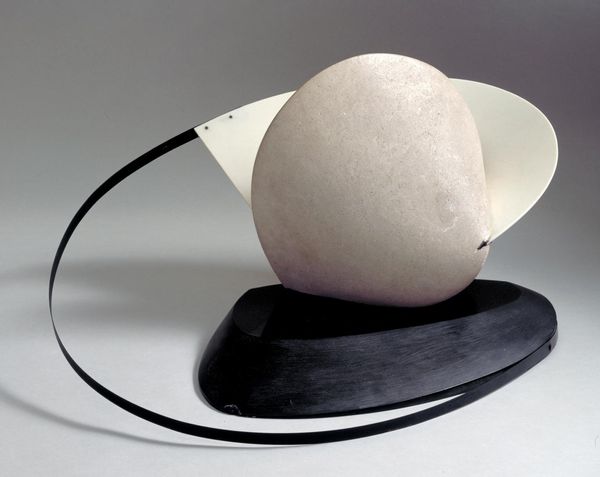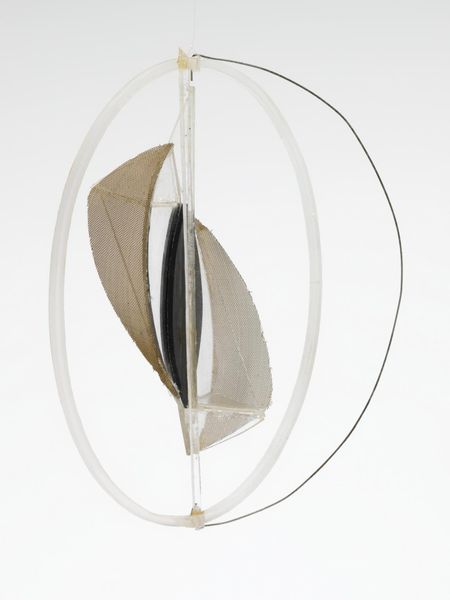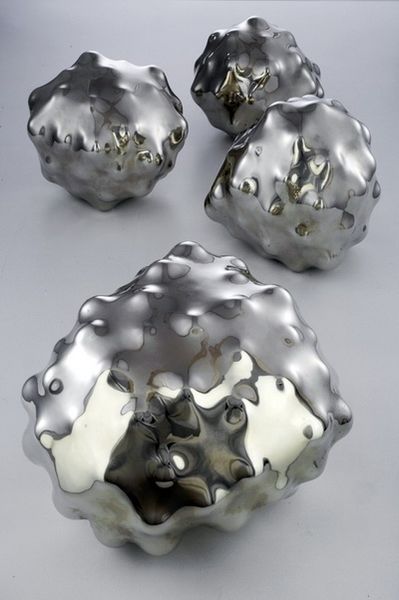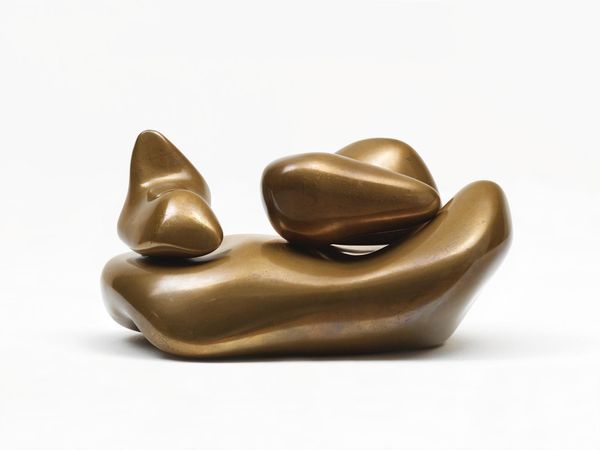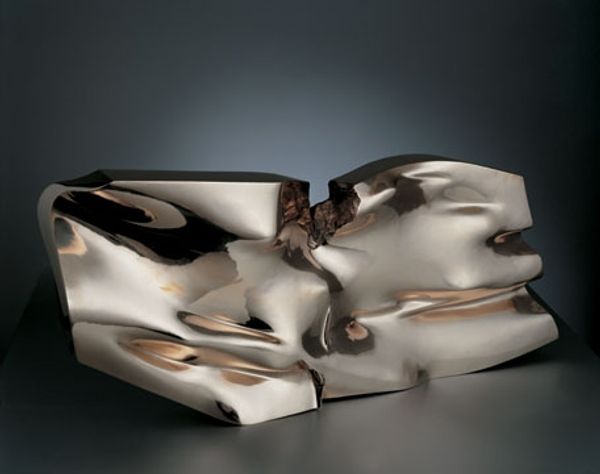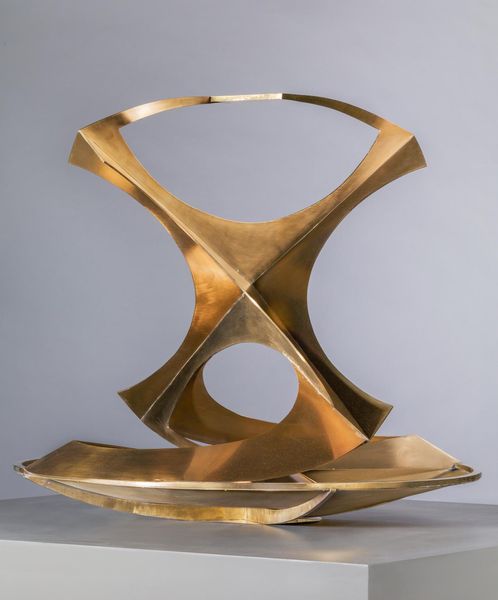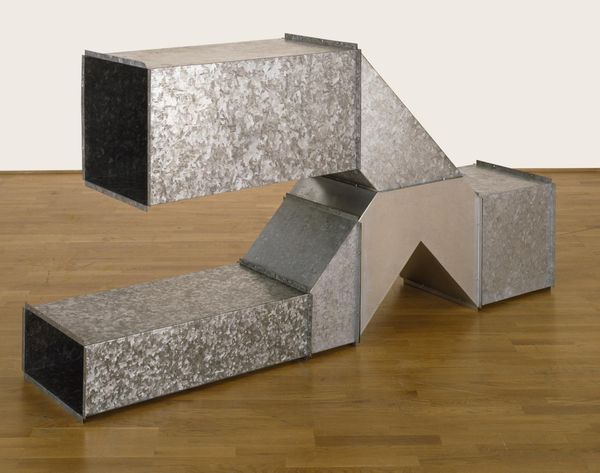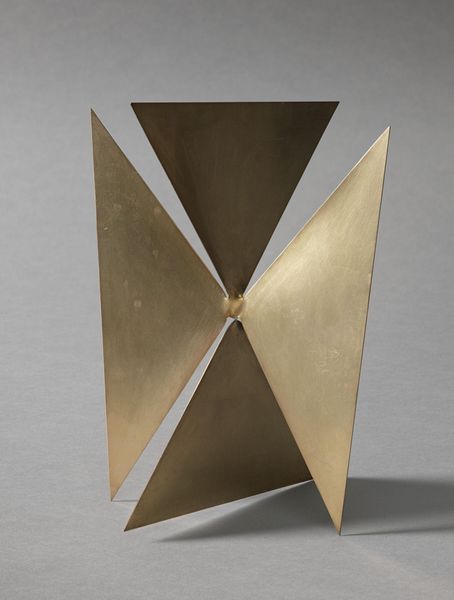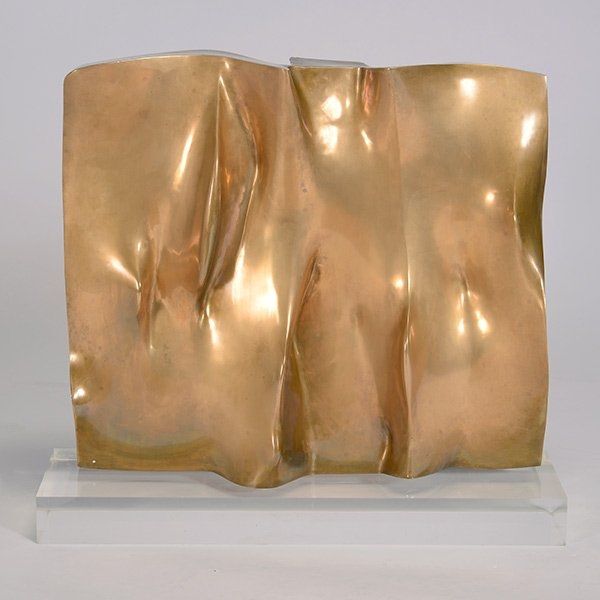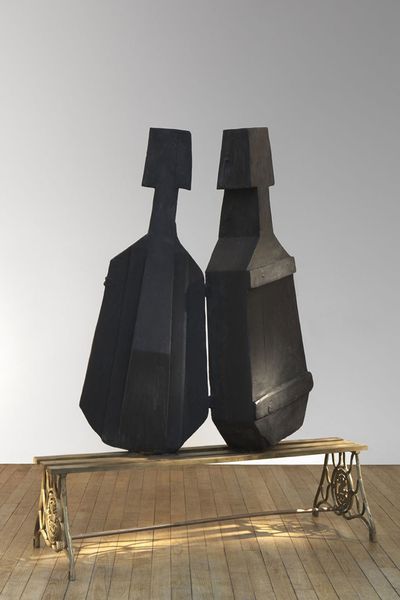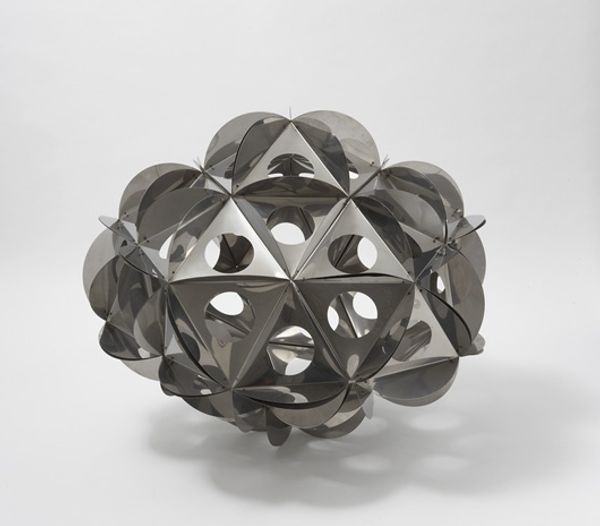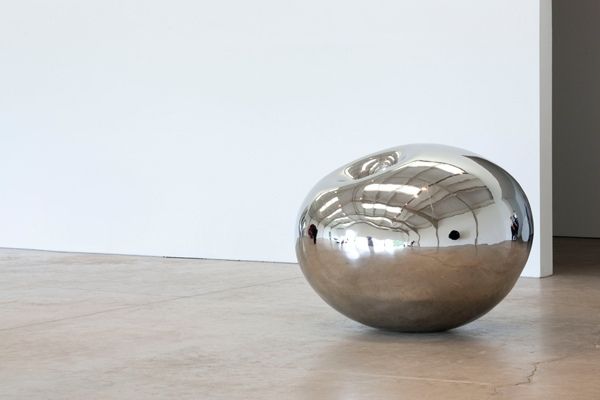
Dimensions: object: 220 x 330 x 285 mm
Copyright: © reserved | CC-BY-NC-ND 4.0 DEED, Photo: Tate
Curator: Marlow Moss’s "Balanced Forms in Gunmetal on Cornish Granite" presents a compelling dialogue between industrial material and the natural world. Editor: It has a stark, almost otherworldly quality. The contrast between the polished metal shapes and the rough granite is striking. Curator: Moss, working in the mid-20th century, was deeply engaged with abstraction and constructivism. The piece exemplifies a breakdown of traditional sculptural boundaries. She challenges the notion of sculpture as a solely representational object. Editor: The choice of materials, the gunmetal and locally sourced granite, speaks volumes about her process. Was it intended to be displayed within an institutional setting? Curator: Well, its presentation here at Tate St Ives underscores the museum’s role in defining artistic value and celebrating Moss’s innovative approach to form and material. Editor: Ultimately, this sculpture invites us to reconsider the relationships between industry, nature, and the cultural institutions that frame our understanding of both. Curator: Indeed, it pushes us to consider the social implications of material choices and the labor inherent in artistic production.
Comments
tate 9 months ago
⋮
http://www.tate.org.uk/art/artworks/moss-balanced-forms-in-gunmetal-on-cornish-granite-t01114
Join the conversation
Join millions of artists and users on Artera today and experience the ultimate creative platform.
tate 9 months ago
⋮
Marlow Moss, born Marjorie Moss, studied briefly at the Slade School and then at Penzance Art School in Cornwall. In 1927 after a short but crucial visit to Paris, in which Moss was overwhelmed by the work of the painter Piet Mondrian, Moss broke off connections with England and went to live and work in Paris. Moss made contact with Mondrian then and subsequently became a pupil of Léger and Ozenfant. With the advent of the Second World War, Moss fled from France and returned to Cornwall. There, Moss made abstract paintings in pure colours and some geometric sculptural compositions, of which this is a rare example. Gallery label, August 2023
